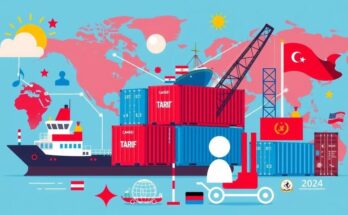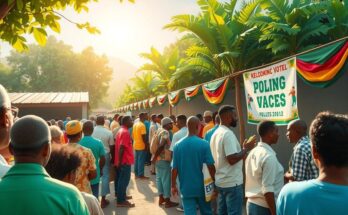Russia’s historical connections to South Africa and its anti-colonial narrative influence public opinion. Key figures from the ANC, like Sue Dobson, illustrate this link, while current sympathies towards Russia reflect broader geopolitical dynamics. Despite condemnation from the West, many African nations maintain a favorable stance, underpinned by a shared history of anti-colonial resistance and contemporary political interests.
In South Africa, the historical connection to Russia, particularly its ‘anti-colonial’ narrative, has significantly influenced contemporary public opinion. This sentiment is rooted in the Cold War era, where figures like Sue Dobson, who became a spy for the African National Congress (ANC) in the 1980s, were trained in Moscow. Dobson’s experiences during the apartheid regime showcased the historical ties between the ANC and Soviet Russia.
Dobson recounted her intense training in Moscow during 1986, which equipped her with skills for undercover missions: “It was a very intensive training course … there were several street exercises where I would go out and I’d have to identify several people who were following me.” Following her return, Dobson faced danger and ultimately made a dramatic escape to the United Kingdom after her cover was compromised due to her family’s ANC connections.
The support for Russia in Africa has been increasing despite widespread Western condemnation of the ongoing conflict in Ukraine. A mere half of African nations condemned Russia at the United Nations when the war was launched. This divergence is grounded in Russia’s historical positioning as a supporter of anti-colonial movements, contrasting with the colonial exploits of Western powers during the Scramble for Africa. Historically, Russia aligned itself with Ethiopia during its resistance against Italy in the 1890s, though Western scholars like Oleksandr Polianichev have critiqued the exaggeration of Russia’s involvement.
The Soviet Union’s role during the Cold War saw it providing significant support to various African nations resisting Western-backed factions. “The Soviet Union had ideological and practical motives for supporting anti-colonial movements and decolonisation in the Global South,” stated Kimberly St Julian-Varnon. The USSR’s strategic motivation aimed to prove that its socialist model was superior while gaining access to valuable resources from these nations.
Patrice Lumumba University was established in Moscow in the 1960s to educate African students. However, instances of racism have marred this narrative, highlighting contradictions in Soviet ideology as noted by St Julian-Varnon. Despite these challenges, many African students continued to pursue education in the USSR, drawn by opportunities despite underlying racial tensions.
The ANC, currently South Africa’s ruling party, demonstrates a reluctance to outright condemn Russia, reflective of the historical ties between the ANC and the USSR, particularly among senior members who benefited from training and education in Russia. Dobson acknowledged this connection, emphasizing, “I think that it’s something that is quite respected and honoured.”
The grassroots support for Russia is evident in recent events, such as a counter-rally in Durban where pro-Russian sentiments were displayed, demonstrating the enduring appeal of Russia’s narrative amidst the complexities of global politics. Moscow’s debt forgiveness and military support in African nations have further entrenched this influence. Historian Polianichev notes, “The appeal of Russia’s ‘anti-colonial’ narrative lies in its usefulness to societies and ruling elites … who are willing to accept or even embrace it as long as it aligns with their own political sensibilities.”
In summary, Russia’s anti-colonial narrative resonates strongly within South Africa due to deep historical connections and the ANC’s ties to the Soviet Union during the Cold War era. Despite criticisms of current political actions, many African nations are reluctant to condemn Russia, aligning with its historical support for anti-colonial movements. This complex interplay between history, politics, and public sentiment reveals the persistent impact of geopolitical narratives in shaping contemporary alliances and perceptions across the continent.
Original Source: www.aljazeera.com




